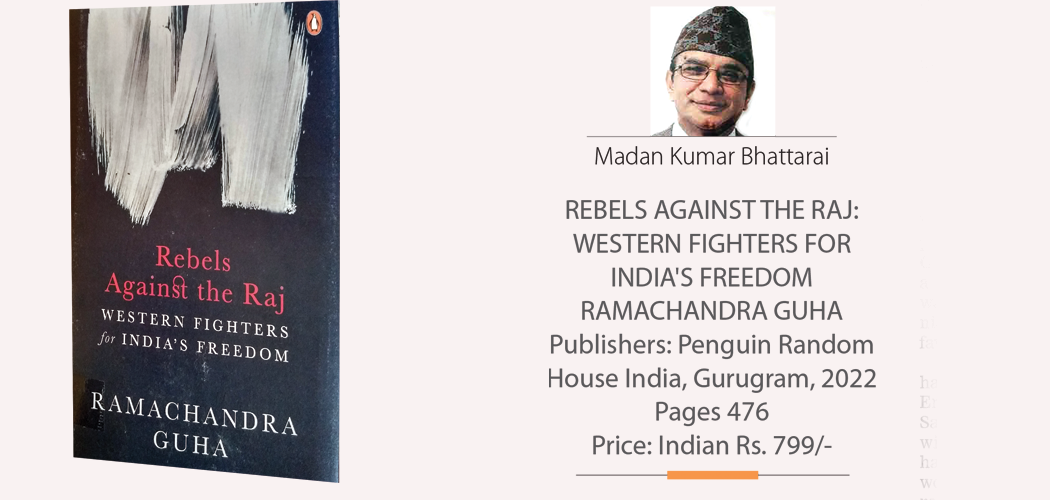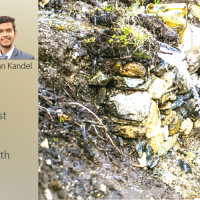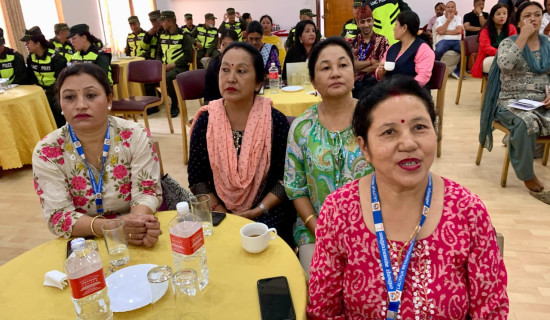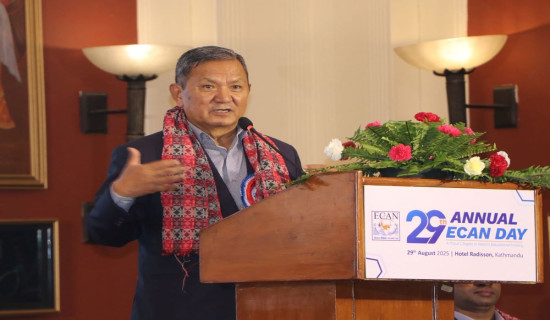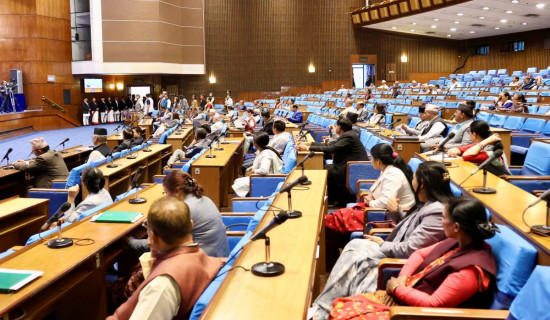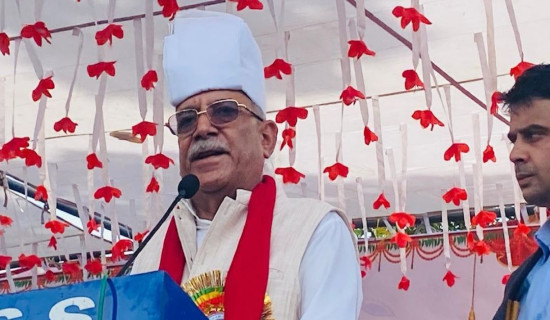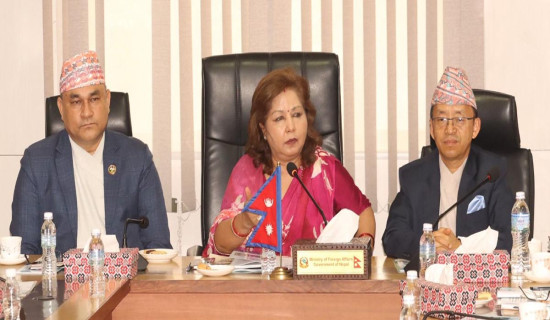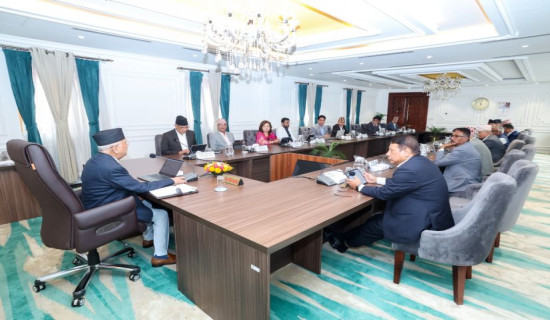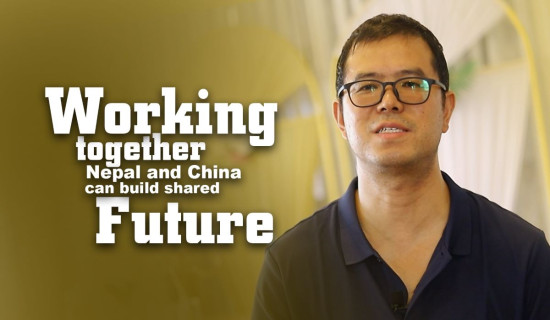- Saturday, 30 August 2025
Western Rebels Aiding India's Independence Struggle
Madan Kumar Bhattarai
Apart from many disciplines, he can claim mastery, the very fact that he is both an economist and historian may be one factor that makes him a great writer whose composite views may be criticised but can't be wholly ignored in the context of India's reality.
Born in Dehradun to Tamil parents, he is a product of some elite institutions like Cambrian Hall founded by Prime Minister Juddha Shumshere's son, Sashi Shumshere in 1954, Doon School, St. Stephen's College, New Delhi and Delhi School of Economics, and earned his PhD from the prestigious Indian Institute of Management, Kolkata, on a subject focusing on Chipko movement related to Uttarakhand, his state of birth.
While Guha is found to have unqualified admiration of Mahatma Gandhi publishing authoritative volumes on the Father of the Nation that Gandhi is taken and mixed
opinions on many actors of Indian politics, he seems to harbour pathological dislike for a section of Indian politicians including those in power now.
Likewise, asserting that Jawaharlal Nehru was Gandhi's anointed successor over several top people as he thought that he could be the rallying point to connect both varying forces in India and India and the world, Nehru chose to depart from his mentor in terms of his stress on rapid industrialization and mechanization as opposed to Gandhi's emphasis on self-sufficient villages that constituted India.
In choosing rebels who constitute the subject of the voluminous book, the celebrated author lists five British and two Americans coming from different backgrounds.
Out of them, four are men and three are women. It is no doubt that many Westerners became champions of India starting from politics to social ethos adopting India as their land. The first person reckoned in the book is Mrs Annie Besant, a famous educationist, orator, women's rights champion, human freedom proponent and philanthropist who propagated home rule and ultimately India's independence.
She became one of the five foreigners to head the Indian National Congress established in 1885 by two foreign-born ladies but married to Indians, Nellie Sengupta and Sonia Gandhi, also having presided over the grand old party of India. Gandhi is the incumbent chief being at the helm for the longest period.
Benjamin Guy Horniman is the second British and famous journalist chosen by Guha for his role in India's freedom struggle. Horniman came to Kolkata to take over as editor of The Statesman after having his association with the Daily Chronicle and Manchester Guardian in England. Later he started to edit The Bombay Chronicle.
The third rebel shortlisted for his book by Guha is an American, Samuel Evans Stokes also called Satyananda Stokes, who played a phenomenal role in the Indian independence struggle. After coming to India and settling in Shimla, he first worked in the leper community and was instrumental in introducing apple cultivation in Himachal Pradesh.
His daughter-in-law Vidya Stokes devoted herself to active politics for a long time.
The fourth renegade in the list of Guha is a British lady, Madeleine Slade commonly known as Mira Behn who associated fully with Mahatma Gandhi in respect of playing a focal role in the Indian freedom movement.
Taken as Gandhi's virtual daughter, she adopted many attributes of her foster father, from vegetarianism to teetotalism and served also as his interpreter. She was one of the few examples of becoming a direct witness to so many incidents linked to India's freedom struggle. The fifth pro-Indian independence rebel selected by the writer is Philip Spratt who came to India from Britain as a Communist he was drafted to spread Communism in India and became one of the founders of the Communist Party of India. A writer and journalist, he later lost steam with and debunked Communism in both theory and practice, and was implicated in several cases.
The sixth person on the exclusive list is Ralph Richard Keithahn, an American whose grandparents had moved to the new continent from Germany. A missionary and social worker with a special fascination for Gandhi and India, he was under a constant watch list of British colonial authorities for his unrestrained activities in favour of Indian independence.
The seventh and last crusader that Guha has chosen is Catherine Mary Heilemann, an English lady more popularly known in India as Sarala Behn or Sarala Devi, not to be confused with another freedom fighter of the same name hailing from present-day Odisha. A champion of women's education, Sarala Behn played a crucial role in the Indian freedom movement.
The most important attribute of the writer is his exemplary research to give a rather balanced view of the contributions of all seven non-Indians who came to India to propagate Indian freedom and imbibed the core philosophy of Mahatma Gandhi and India.
There is no doubt that many of them got frustrated with the country later as they found themselves not in harmony with things that emerged after independence and more so after the assassination of their most affectionate and respected philosopher on January 30, 1948, almost immediately after India emerged as a sovereign country.
The writer deserves special accolades for his wonderful publication even though the list of seven is just an indicative selection and not exhaustive as so many others came to India to adopt the country as their own and helped a lot in its social, economic and political resurgence.
(Dr. Bhattarai is a former Foreign Secretary, ambassador and author. kutniti@gmail.com.)

